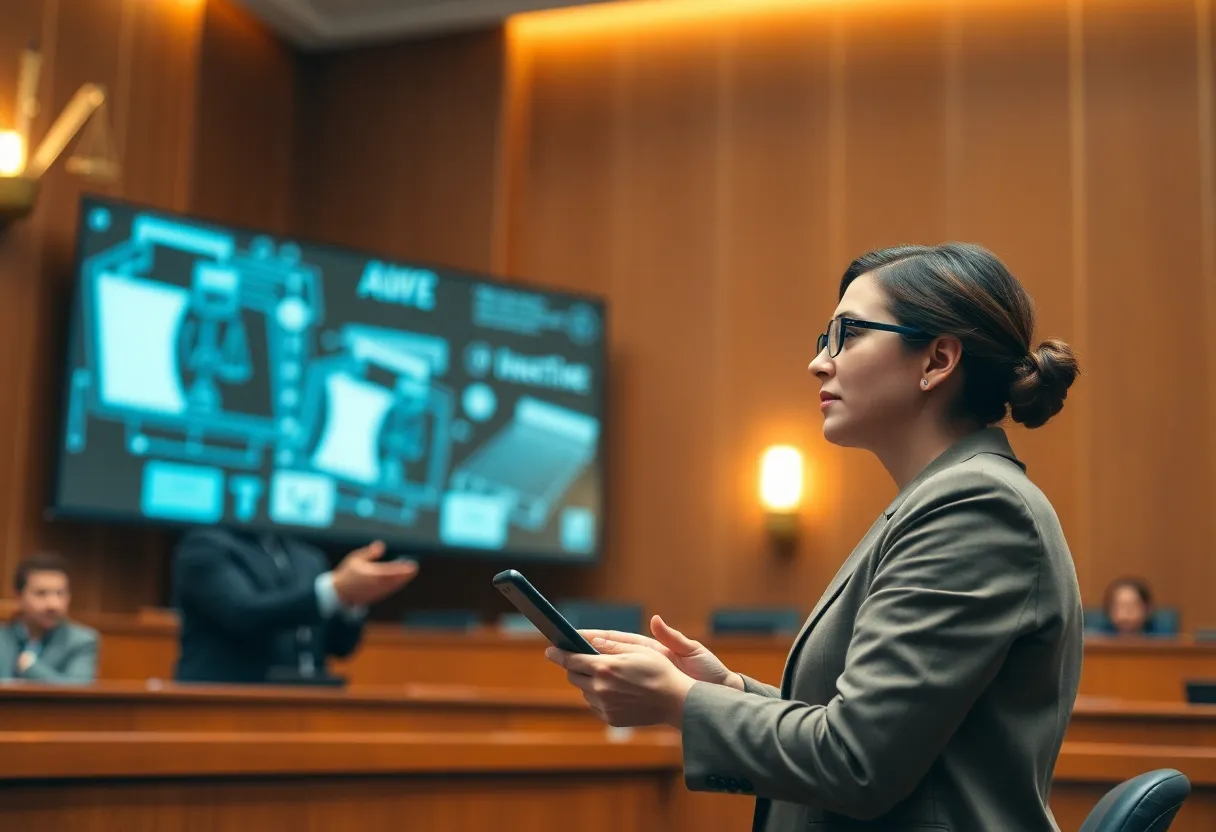News Summary
Arizona has made history by becoming the first state to implement artificial intelligence technology in a courtroom, creating a victim impact statement during the sentencing of Gabriel Horcasitas for manslaughter. The AI-generated video featured a representation of victim Christopher Pelkey, delivering an emotional message of forgiveness. This development raises important ethical discussions on AI’s role in the judicial system and may reshape how victim statements are presented in the future. The Arizona Supreme Court is now forming a committee to explore best practices for AI integration in legal proceedings.
Arizona has made headlines this week as it became the first state to utilize artificial intelligence (AI) technology to create a victim impact statement within a courtroom setting, marking a pivotal moment that could have broader implications for the U.S. judicial system.
The innovative use of AI was showcased during the sentencing of Gabriel Paul Horcasitas, who was convicted for the manslaughter of Christopher Pelkey, a victim of a road rage incident in Chandler in 2021. At the sentencing hearing, a video featuring an AI-generated likeness and voice of Pelkey was presented to the court.
This groundbreaking video, prepared by Pelkey’s sister Stacey Wales and her husband, depicted Pelkey addressing Horcasitas. In an emotional message, Pelkey conveyed thoughts of forgiveness, emphasizing humanity amidst tragedy. The reaction from the courtroom audience was one of shock and deep emotion, as the AI representation captured Pelkey’s personality, humor, and essence.
Judge Todd Lang expressed his sentiments regarding the AI-generated message, describing it as heartfelt and genuine during the sentencing process. Following the presentation, the judge sentenced Horcasitas to 10.5 years in prison, which exceeds the prosecution’s recommendation of 9.5 years and aligns with the family’s desire for maximum sentencing.
This case opens up a dialogue regarding the ethical and legal implications of employing AI technology in the court system. Concerns have been raised about fairness and the potential impact on marginalized communities, including the risk of misrepresentation and bias in AI-generated content. Nevertheless, Wales highlighted the importance of ethical considerations in scripting the statement to ensure that it accurately reflected Pelkey’s beliefs and values.
In light of this development, the Arizona Supreme Court has initiated the formation of a committee dedicated to researching and devising best practices for integrating AI technology into legal practices. This committee will likely explore the potential benefits and challenges that AI usage poses within courtroom environments.
The AI-generated video was crafted by merging real clips of Pelkey with advanced AI technologies to create a depiction that closely aligned with his true essence. Family members who viewed the video reported feelings of peace and closure, with some stating it provided a means to feel connected to Pelkey one last time, particularly resonating with one of Stacey’s children.
Legal experts are closely monitoring the implications of this case, recognizing a potential shift in how victim statements may be presented in court moving forward. The use of AI in the courtroom presents both challenges and opportunities to evolve traditional practices, highlighting the need for careful consideration in its application to ensure that justice is served equitably.
This unique instance of AI usage in Arizona’s legal proceedings may pave the way for future innovations in how victim impact statements are delivered and received, prompting a reevaluation of technology’s role within the judicial system. Stakeholders are urged to remain vigilant in addressing the ethical questions that arise with such advancements, ensuring that the integrity of the legal process is upheld.
Deeper Dive: News & Info About This Topic
- 12 News
- Wikipedia: Artificial Intelligence
- ABC 15
- Google Search: Artificial Intelligence Legal Implications
- GlobeNewswire
- Google Scholar: Artificial Intelligence in Courtrooms
- KTAR
- Encyclopedia Britannica: Artificial Intelligence
- GlobeNewswire Resource
- Google News: AI in Courtrooms

Author: STAFF HERE PHOENIX WRITER
The PHOENIX STAFF WRITER represents the experienced team at HEREPhoenix.com, your go-to source for actionable local news and information in Phoenix, Maricopa County, and beyond. Specializing in "news you can use," we cover essential topics like product reviews for personal and business needs, local business directories, politics, real estate trends, neighborhood insights, and state news affecting the area—with deep expertise drawn from years of dedicated reporting and strong community input, including local press releases and business updates. We deliver top reporting on high-value events such as the Waste Management Phoenix Open, Cactus League Spring Training, and Arizona State Fair. Our coverage extends to key organizations like the Greater Phoenix Chamber of Commerce and Visit Phoenix, plus leading businesses in technology and healthcare that power the local economy such as Intel and Banner Health. As part of the broader HERE network, including HERETucson.com, we provide comprehensive, credible insights into Arizona's dynamic landscape.





